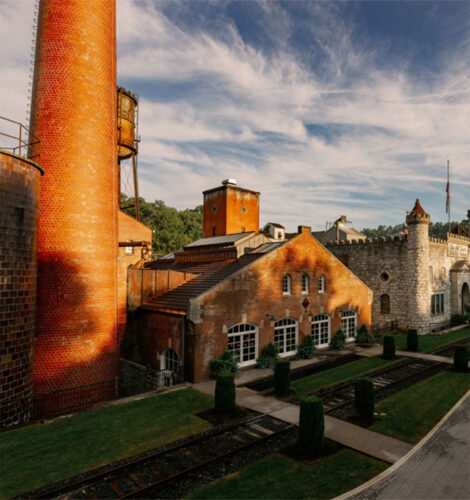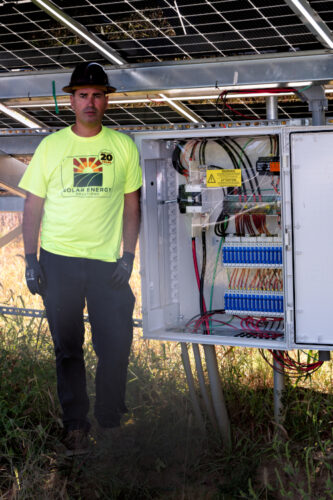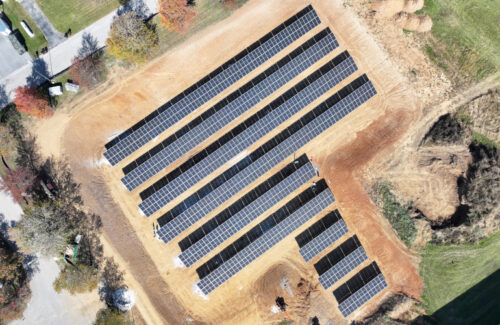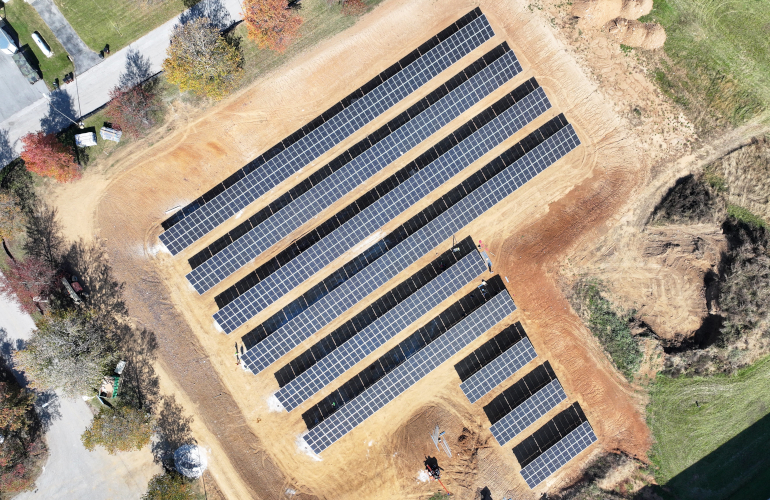With roots dating back to the early 1800s by one of the forefathers of the American spirits industry, Castle & Key Distillery, located in the heart of Kentucky’s bourbon country in Frankfort, is known for more than its craft spirits.
 Built in the late 1800s in a style meant to align with European architectural designs, the property features a castle, springhouse and sunken garden. It has been painstakingly restored to honor that heritage, and, since its reopening in 2018, distillery leaders have earned a reputation for forward-looking, innovative and modern sustainability practices.
Built in the late 1800s in a style meant to align with European architectural designs, the property features a castle, springhouse and sunken garden. It has been painstakingly restored to honor that heritage, and, since its reopening in 2018, distillery leaders have earned a reputation for forward-looking, innovative and modern sustainability practices.
As it was planning to construct a new bottling operation adjacent to its warehouse in nearby Versailles, the distillery decided to invest strategically in a large-scale solar PV project. In addition to reducing Castle & Key’s carbon footprint and lower long-term energy costs, solar power would set a precedent for renewable energy adoption in Kentucky’s spirits industry. But integrating PV services into a historic property presented unique hurdles, from aesthetic considerations and preservation requirements to the practical realities of power generation for a production facility.
The journey from concept to completion required strategic planning, close collaboration with partners and creative problem-solving. Timing was critical, as a $2 million grant from the USDA Rural Energy for America Program (REAP) would expire at year-end.
Challenge: Merging modern sustainability on a heritage site
Castle & Key saw the bottling expansion as the perfect opportunity to operate more sustainably. Currently served by Louisville Gas and Electric and Kentucky Utilities, two utilities that rely heavily on coal and natural gas, the distillery recognized that producing its own electricity could deliver both cost stability and meaningful environmental impact.
The distillery partnered with local installer Solar Energy Solutions (SES) to engineer and construct the on-site system.
From the outset, the project faced challenges due to aggressive deadlines. The first half of the solar array needed to be installed, energized and inspected by Dec. 31, 2024, to qualify for tax credits and maximize REAP grant funding. The timeline pressure meant that delays at any stage — whether in design, component availability or utility approval — could jeopardize millions in financial incentives.
Technical hurdles also needed to be addressed. The PV system had to be carefully engineered to integrate with the distillery’s operations, then connected to the utility grid under strict safety standards — particularly given the flammable spirits stored at the site. Permission to operate could only be granted once inspectors confirmed the system met all codes. In addition, Castle & Key wanted the system to be robust enough to perform reliably for decades, which required careful attention to component durability, maintenance needs and scalability for a second construction phase.
Solution: Leveraging proven expertise and suppliers
 With 20 years in the business, SES leveraged its strengths as a vertically integrated engineering, procurement and construction (EPC) firm to deliver a turnkey solution. This in-house approach ensured accountability and coordination across the fast-moving Castle & Key build. Rather than a closed system, the distillery opted to remain connected to utility lines, allowing it to sell excess power generated and ensure it still had power to operate during adverse weather, such as cloudy skies or snow.
With 20 years in the business, SES leveraged its strengths as a vertically integrated engineering, procurement and construction (EPC) firm to deliver a turnkey solution. This in-house approach ensured accountability and coordination across the fast-moving Castle & Key build. Rather than a closed system, the distillery opted to remain connected to utility lines, allowing it to sell excess power generated and ensure it still had power to operate during adverse weather, such as cloudy skies or snow.
A key part of the SES solution was a partnership with Weidmuller, which has supplied PV components to the international market for 15 years. The U.S. arm, Weidmuller USA located in Richmond, Virginia, was called on to meet the year-end deadline and provide the required PV DC combiner boxes that could be delivered quickly and installed without delay. Weidmuller USA ensured SES had the necessary enclosures on-site to complete wiring, connection and testing before the critical year-end energization.
These combiner boxes bundled multiple DC strings from the solar panels, protected them with integrated fuses and surge protection, and provided a single aggregated feed to the inverters. By streamlining the system design, the Weidmuller equipment not only saved time but also provided a durable solution — coupled with a five-year warranty — built to last.
SES and Weidmuller’s technical teams coordinated closely on design specifications, which included adapting the number of strings and configurations. The boxes’ modular format allowed flexibility between this initial phase and the next-stage build-out, ensuring the system could be expanded smoothly. While this initial installation did not include string monitoring, used widely in Europe and Latin America, Weidmuller offers retrofit options that can be added later if Castle & Key wants more detailed performance monitoring. Given that solar panels are exposed to extreme weather conditions over their lifetime, string monitoring is advantageous in helping to pinpoint faulty panels or malfunctioning modules.
Results: Running on clean energy
 Sized at 1.2 MWDC, Castle & Key’s initial solar project is designed to deliver 960 kWAC of clean power to run its spirits production. A second-phase project is in development to generate an additional 600 kW for the distillery.
Sized at 1.2 MWDC, Castle & Key’s initial solar project is designed to deliver 960 kWAC of clean power to run its spirits production. A second-phase project is in development to generate an additional 600 kW for the distillery.
By managing the timeline, providing robust equipment and ensuring seamless integration with the grid, SES delivered a system that positioned Castle & Key to achieve both sustainability goals and financial incentives.
This case study is a collaboration among Castle & Key, SES and Weidmuller USA.

